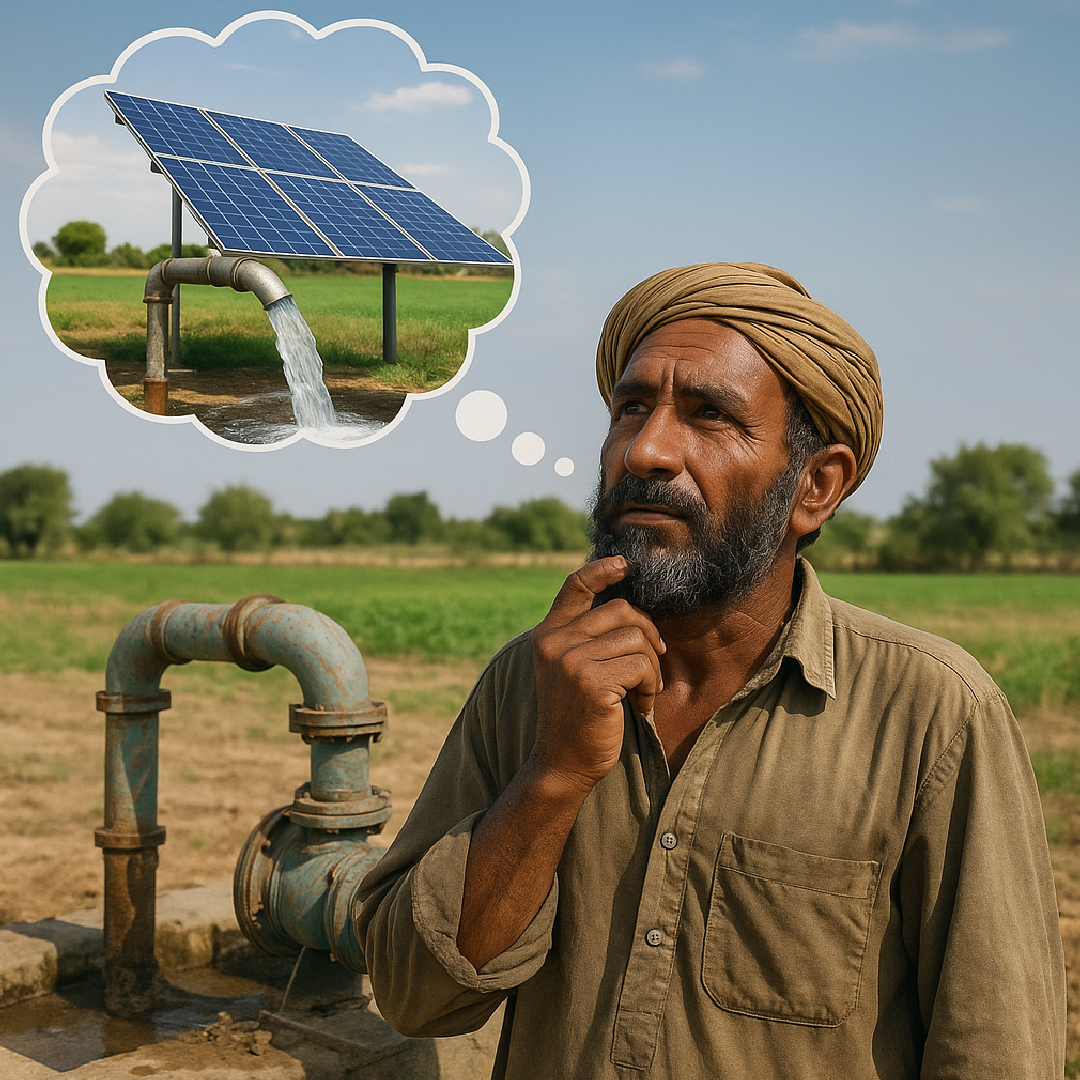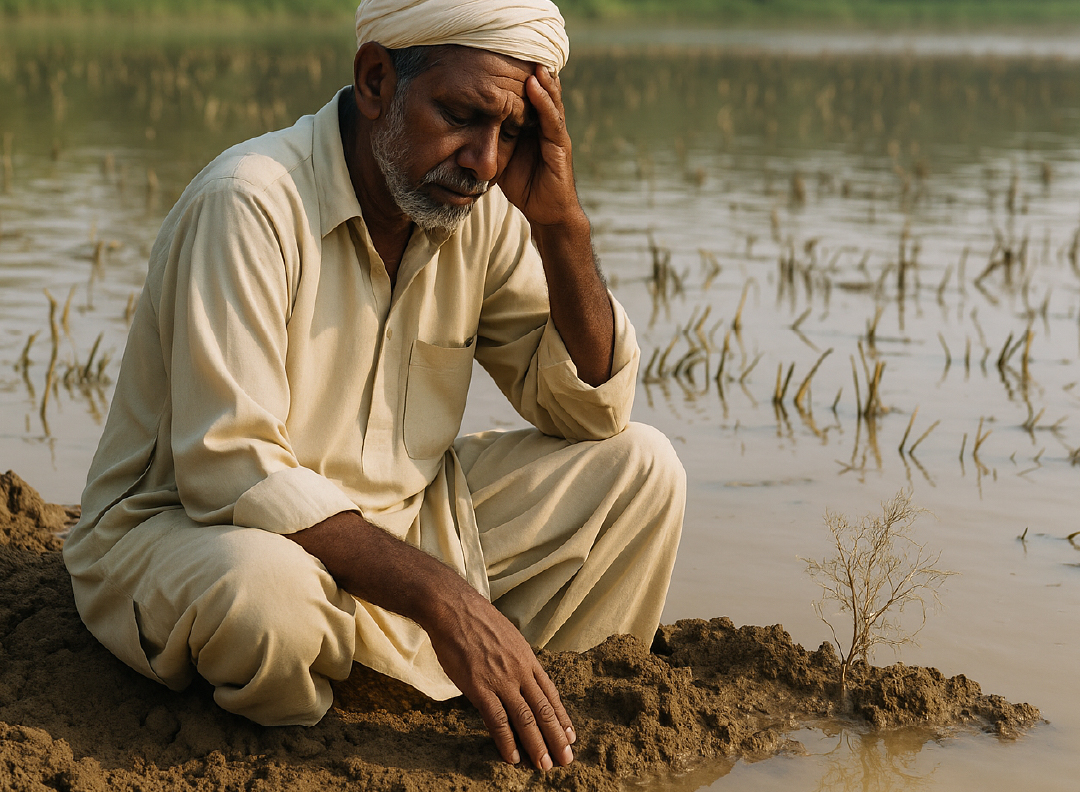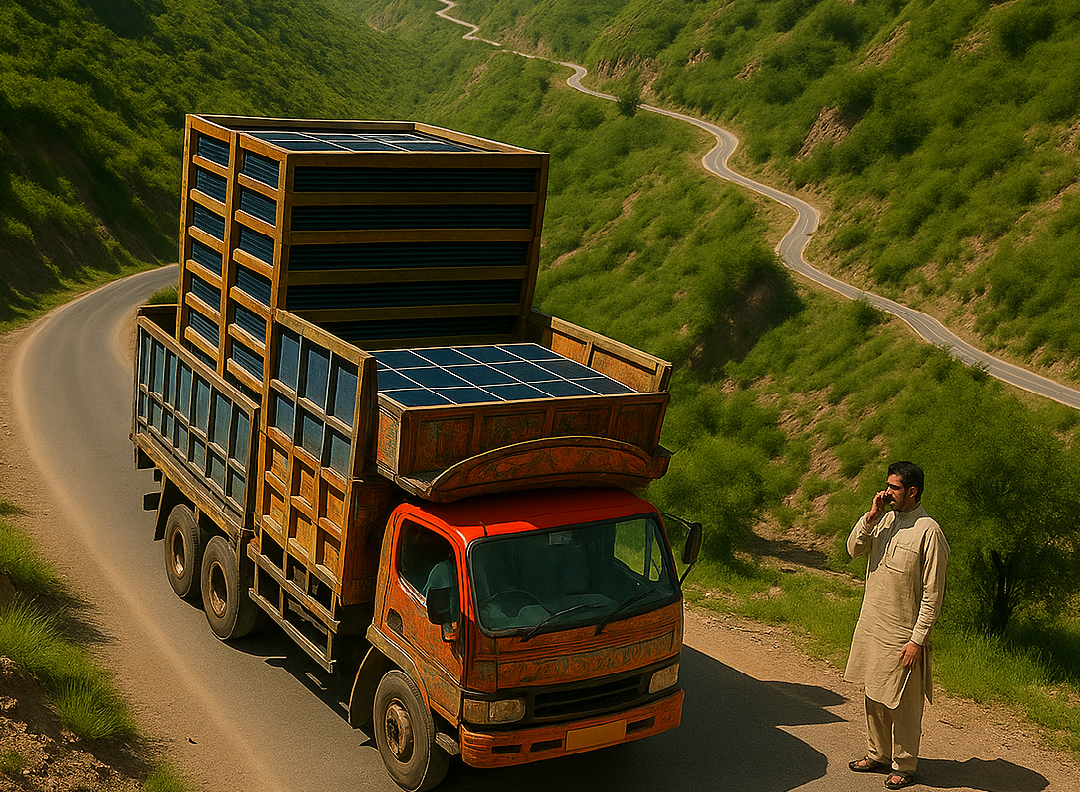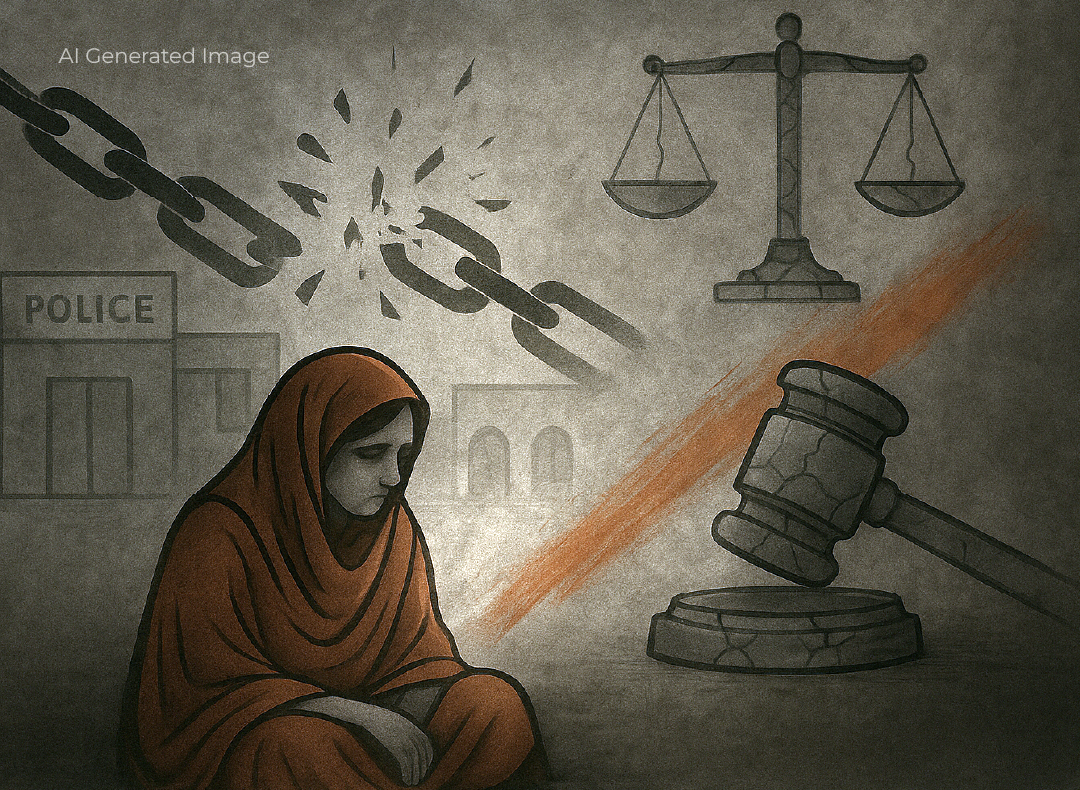The prime minister launched a project last year to shift 27,437 registered agricultural tube wells of the province to solar energy.
Under the project so far, cheques worth over Rs26 billion have been issued to more than 13,400 farmers in three phases. The federal government is paying 70pc of this project worth Rs55bn and the Balochistan government is paying the remaining 30pc. Under the solarization programme, Rs2m are being provided to each registered tube well owner to enable him to convert his electricity-powered system to solar energy.
Siddiqullah is a resident of Pishin and owns 50 acres of agricultural land on which he cultivates apples and some other traditional crops. He confirms that after receiving Rs2m from the government, he has shifted his tube well to solar power.
He says that earlier they used to get electricity from agricultural feeders only for three hours in the months of June, July and August, which made it impossible to water the crops and gardens. Therefore, most of the fields used to lie empty.
“Now after installing solar, our tube well runs for eight hours a day in the summer. Now not only has production increased but we have also got rid of heavy bills.”
Agricultural experts and farmers are calling this project better, but they have reservations about its delay because when the chief minister of Balochistan announced this project, he had said that it would be completed in three months and that it would generate Rs90bn annually. But it has faced continuous delays.
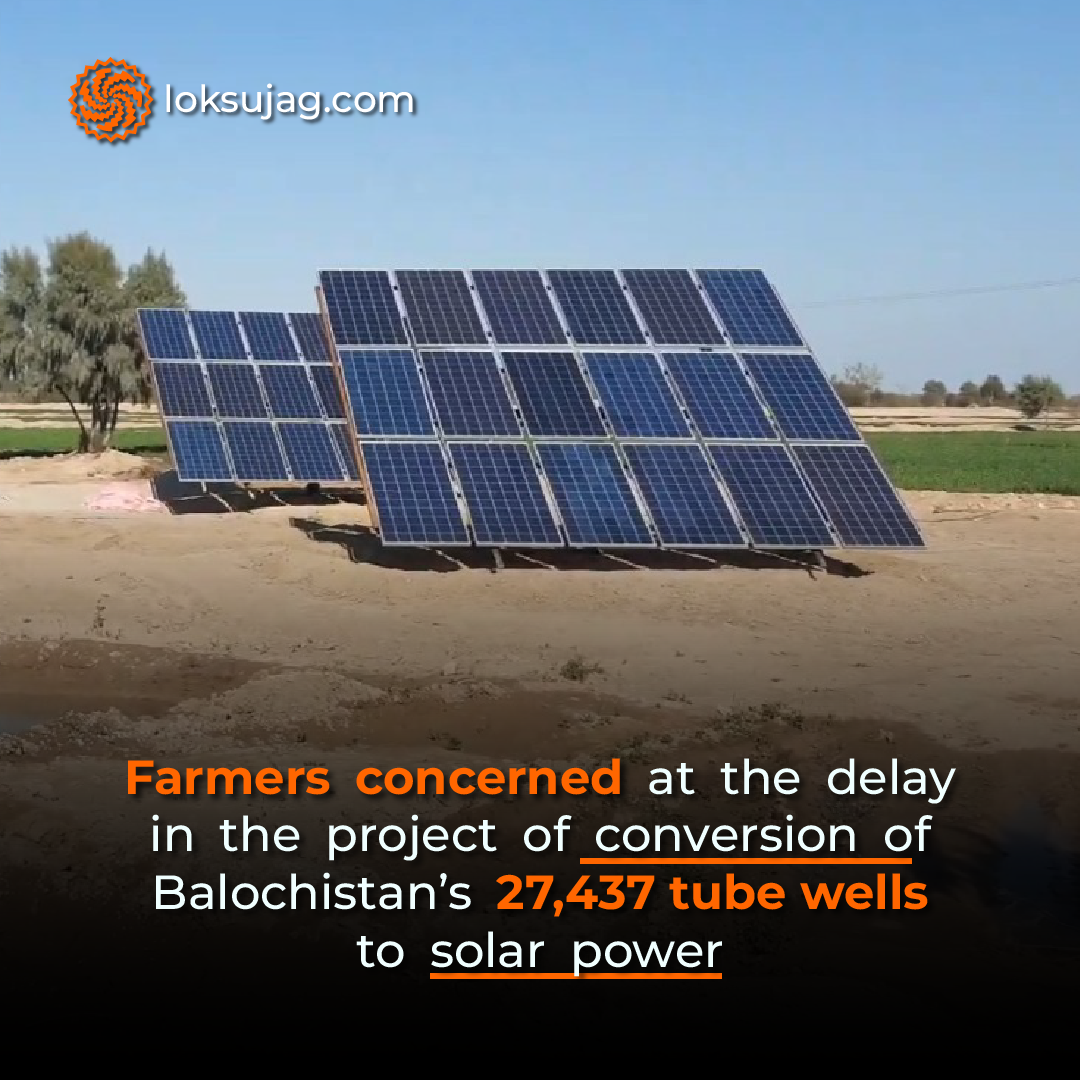
Call for prevention of further damage to orchards
Balochistan has a prominent position in the country in terms of fruit production, but water scarcity in the province has now become a threat to it.
A report by the Agricultural Development Bank says that 98pc of the grapes produced in Pakistan and 93.5pc of the almonds come from Balochistan. Similarly, the province contributes 82pc and 82pc to the total national production of apples and pomegranates, respectively. In Balochistan, peaches account for 69pc of the total national production and plums for 49pc.
Similarly, despite water scarcity, per acre yield of crops like mung beans, sorghum and sesame is better than other provinces.
According to the statistics of the Balochistan government, the total cultivable area in the province is 7.3 million acres, out of which 3.9 million acres could not be cultivated, while crops were cultivated on 3.137 million acres.
Approximately, 65,500 acres of land are irrigated by wells, more than 100,000 acres by karez and springs, approximately 1.5 million acres (84pc of this area is in Nasirabad Division alone) by the canal system, and 1.478 million acres by tube wells. Thus, excluding Nasirabad Division, about 70pc of agriculture in the rest of the province depends on groundwater.
According to this data, the total number of tube wells (electric, diesel, solar) across Balochistan in 2023 was 72,681, while 27,437 (electric) tube wells were registered with the agriculture department. It has been decided to convert those 27,437 tube wells to solar energy.
Siddiqullah says that the farmers whose tube wells have been converted to solar energy are becoming prosperous, which is why the remaining farmers are anxious about when their tube wells will be installed.
“When there is a job to be done, how can there be any delay? The government should also facilitate the rest of the farmers. Because in the last few years, many fruit trees have been cut down in the province due to water shortage,” demands Sadiqullah.
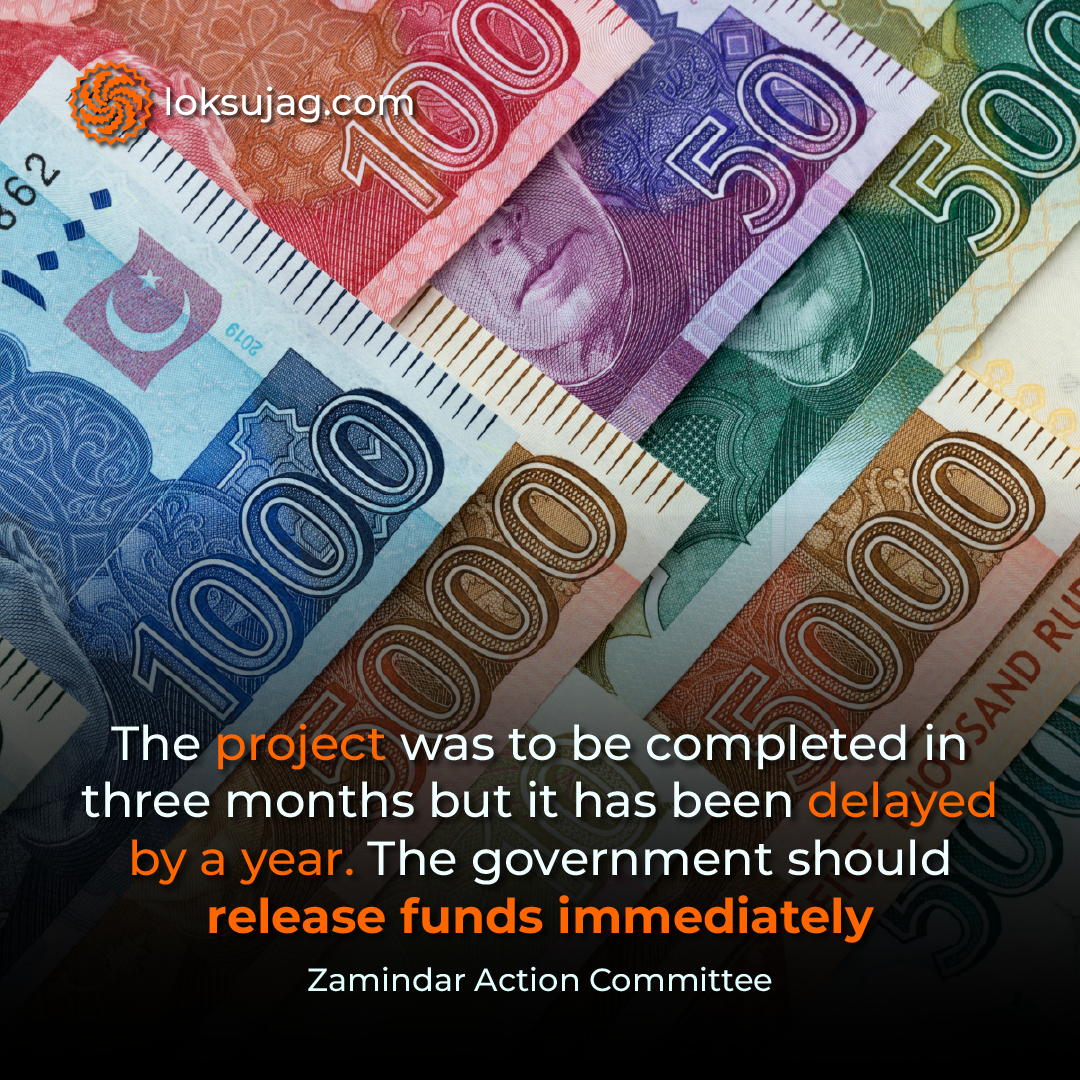
Lame excuses of the officials
Munir Ahmed, a farmer from Mastung, complains that despite his case being approved, he has neither received a cheque nor been able to shift his tube well to solar. He owns 12 acres in Dasht tehsil and has been cultivating it for the 18 years.
He has planted an apple orchard on six acres and grows vegetables on the rest. He says that when the government announced the solarization programme, he immediately applied for it, but he has not received the money yet.
“The Quetta Electric Supply Company (Qesco) officials used to say that they would get the money in March 2025, but now it is July. I visit the office every other week. The officials say that my name is next in the list, but the funds have not been released from the authorities.”
Munir says that during that same summer, due to electricity load shedding, the crops did not get the proper amount of water. Due to voltage fluctuations from above, the tube well motor got stalled twice, which cost him Rs70,000 to repair.
“If I had received the money on time and installed the solar system, I would not have had to bear this financial loss today.”
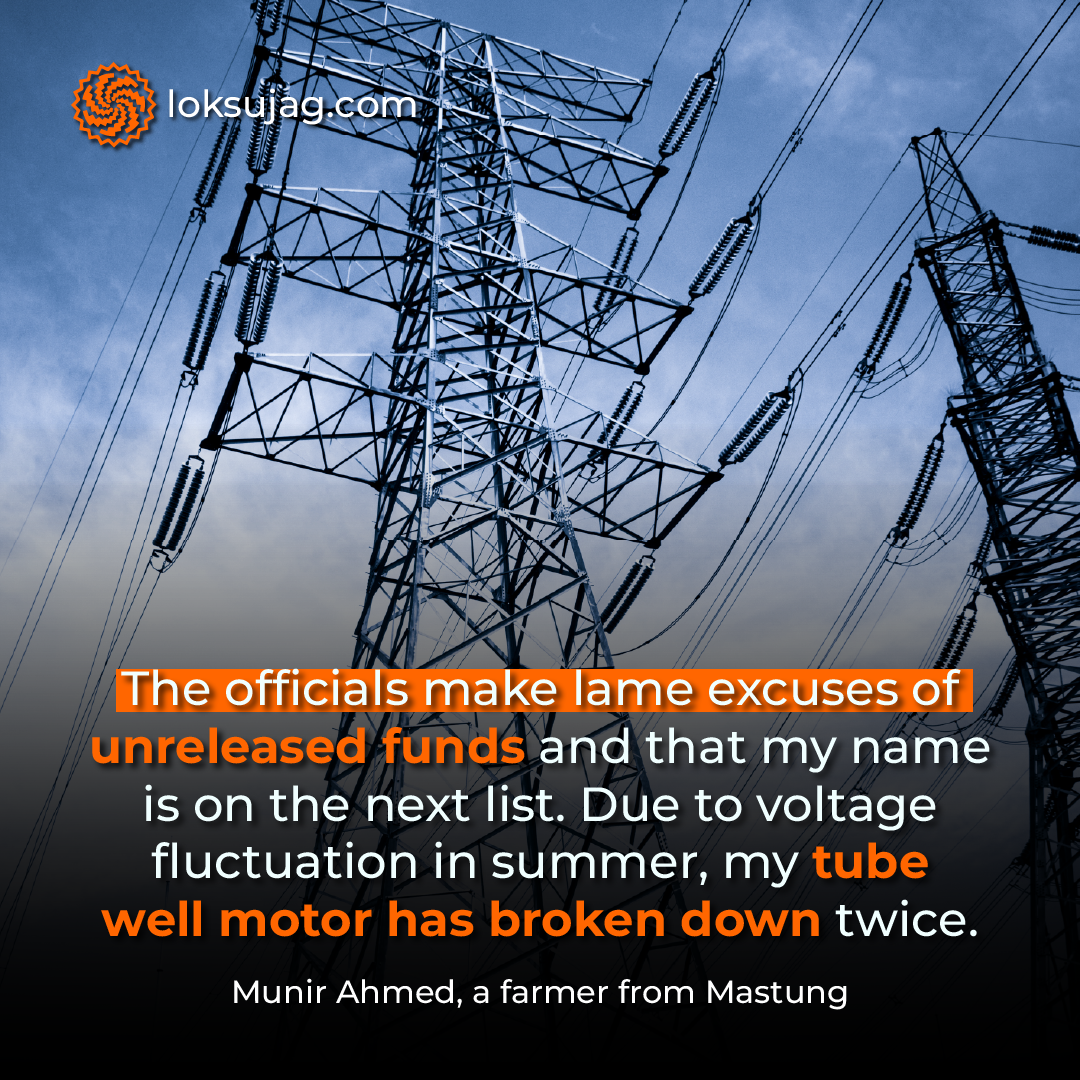
No hope in sight despite promises
The Economic Coordination Committee was told that the project would be completed in July, but there are no signs of it.
Malik Naseer Ahmad Shahwani, the chairman of the farmers’ organization Zamindar Action Committee, working as a third party with the federal government and the Balochistan Energy Department in implementation of the project, also admits that the project is being unnecessarily delayed.
He stresses that the federal and provincial governments should release funds immediately. He says that it was decided that in the first phase, 2,696 tube wells in Quetta and Pishin districts alone would be converted to solar energy, and the work was done in the remaining districts in the second and third phases.
According to reports so far, Rs26.85 billion has been given to the farmers, but more than half of the amount, over Rs28 billion, has not been released. The Economic Coordination Committee had approved the release of another Rs24.5bn on May 6 this year. It was informed in this meeting that this project of solarization of tube wells in Balochistan will be completed by July, but no such signs are visible yet.
In Balochistan, along with non-payment of bills, line losses on rural feeders, especially electricity theft for tube wells, have also been a problem for a long time. It was also decided in the solarization programme that wherever cheques for solarization of agricultural tube wells are distributed under this project, Qesco will dismantle its transformers, HT poles and other electrical equipment.
Qesco had also started the work of removing its installations since the start of the distribution of cheques in Quetta and Pishin in December last year. So that the said agricultural consumers could not reconnect their electricity connections to the Qesco network after switching to solar.
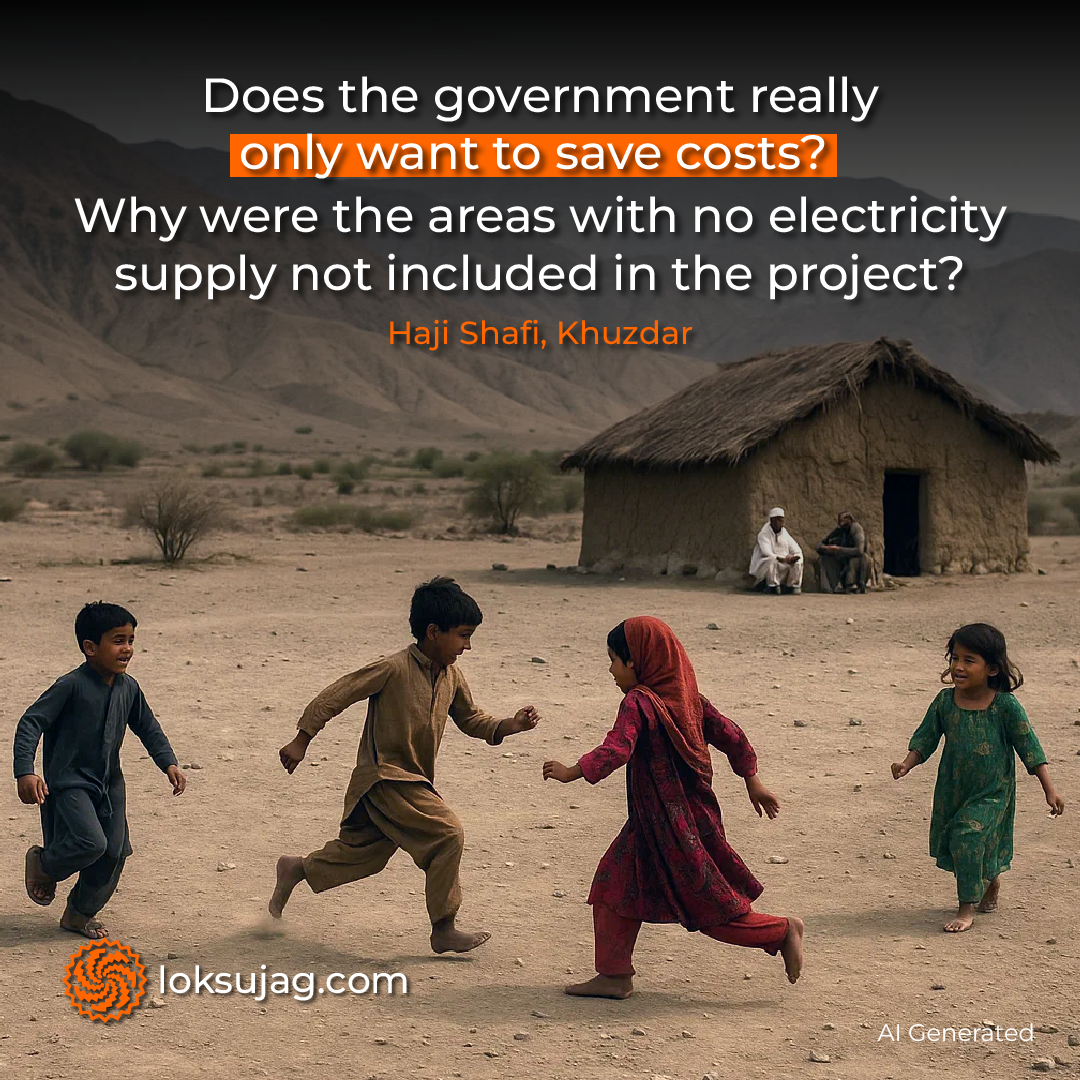
67.4MW cut in electricity consumption
Quetta Electric Supply Company (Qesco) spokesperson Muhammad Afzal Baloch says that after the completion of three phases of solarization of agricultural tube wells, Qesco has severed 13,428 agricultural connections, removed 3,702 poles and 5,593 transformers.
He says that during the first phase in December, 2,699 agricultural consumers were paid in Quetta and Pishin districts and 3,212 agricultural connections were disconnected from these areas, including 513 illegal agricultural connections.
According to the spokesperson, in the second phase, payments were made to 3,729 agricultural consumers of Quetta, Khuzdar, Mastung, Noshki, Kharan and Harnai and 4,662 genuine and 933 illegal tube well connections were severed. Similarly, in the third phase, 7,000 agricultural connections were disconnected and 2,312 transformers, about 1,000 poles and other electrical equipment were also removed.
He says that after distribution of cheques for solar tube wells, notices are being issued to the landowners who have not handed over the electrical equipment connected to their connections to Qesco.
According to Qesco officials, a total of 67.4MW load has been reduced so far due to the solarization of tube wells. However, on completion of the project, the electricity demand may decrease by more than 400MW.
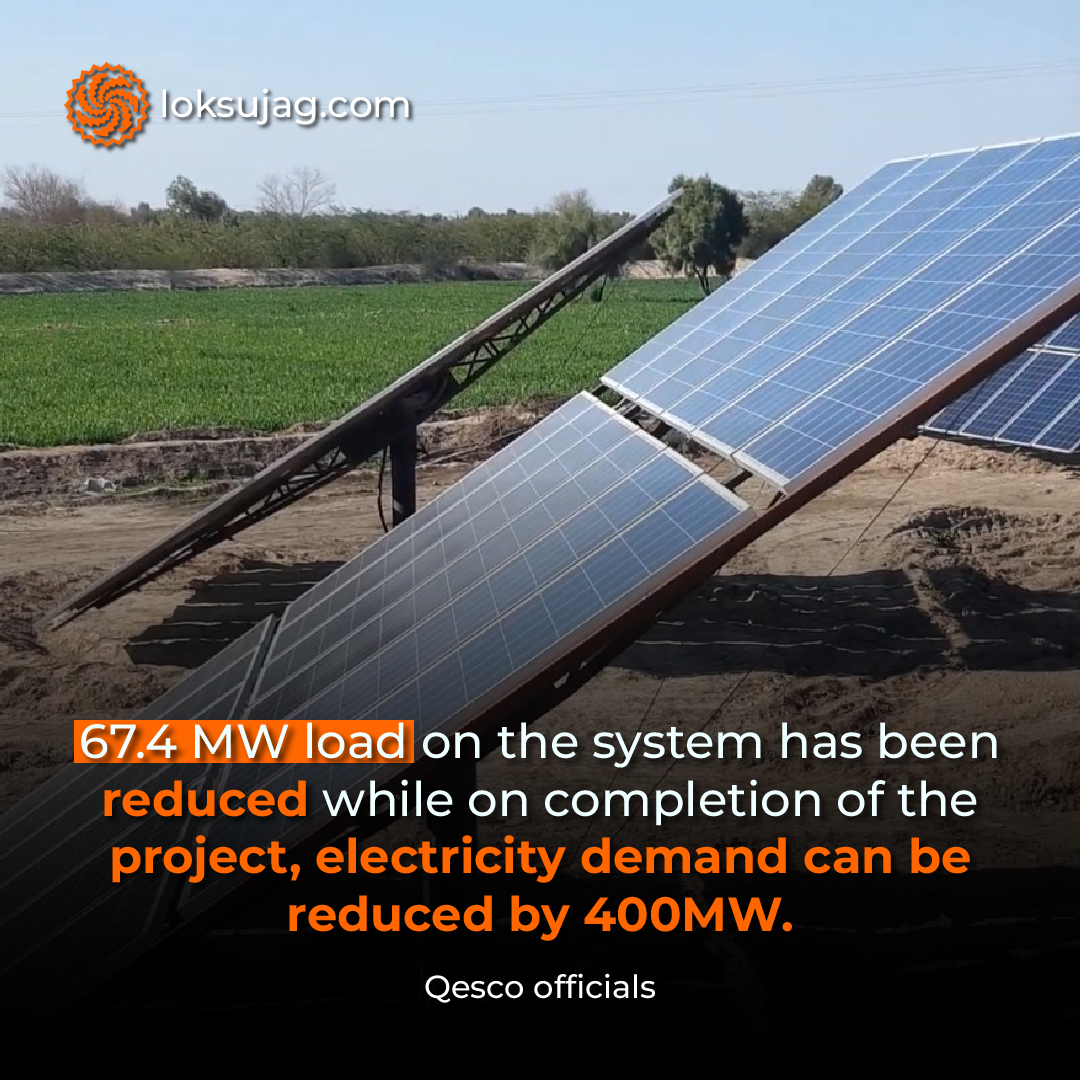
Does the government really want to save costs?
The electricity bill for registered or subsidized agricultural tube wells in Balochistan was fixed at Rs6,000 per month from 2021 to 2022. However, in 2022, it was increased to Rs12,000 but Rs6,500 of the bill was paid by the federal and provincial governments as a subsidy and agricultural tube wells were provided with electricity for six hours. In September 2023, the supply of electricity was cut to three hours.
Despite the subsidy given to agricultural tube wells, the dues of Qesco to farmers had exceeded Rs500 billion. Farmers were also constantly protesting against getting only two/three hours of electricity daily.
Now that farmers have started getting some facilities, some areas where the groundwater is quite deep are facing difficulties.
A local landlord in Mastung says that his area needs more solar panels, and the need is not being met by government funds. However, according to the Farmers Action Committee, around 80 solar panels of more than 500 watts can be purchased for Rs2m, which is enough to extract water from a depth of 700 feet with a 30 horsepower motor.
Haji Shafi, a farmer from Khuzdar, asks why those farmers who had not installed electric tube wells were not included in the solarization program or farmers from the areas where electricity supply was missing. “This means that the government has no interest in our agriculture, environment or the welfare of farmers. It only wants to save their electricity and subsidies,” he declares.
Published on 8 Jul 2025
